▼ Jeevan Rekha: Kerala government launches first e-health program in the country [01-30-17]
 Kerala government has launched an e-health programme Jeevan Rekha to create electronic health records of the population in Thiruvananthapuram. Kerala government has launched an e-health programme Jeevan Rekha to create electronic health records of the population in Thiruvananthapuram.
This is the first-of-its-kind initiative in India, rolled out on Jan 26, 2017.
The aim is to provide a centralised database of healthcare information and efficient health service delivery to the people.
The e-health system will help in creating a good hospital management system and patient-friendly atmosphere in hospitals.
Under the program, 7 out of 14 districts will be covered in the first phase.
Once data of a patient is centralised, it will help the person get continuous treatment at all hospitals in the state.
E-health was a revolutionary step in the health sector in the state.
The government is for bringing in an overall change in the health sector.
Diseases like cholera, malaria and filariasis, which were once eradicated are being reported from the state.
The new system would help in creating a good hospital management system and patient-friendly atmosphere in hospitals.
Once data of a patient is centralised, it would help the person get continuous treatment at all hospitals in the state.
It is one of the biggest achievements in the health sector.
It would be implemented in seven districts in the first phase.
The availability of digital data would provide a huge impetus to disease surveillance.
|
▼ Pulse polio programme launched for children below 5 in 2017 [01-30-17]
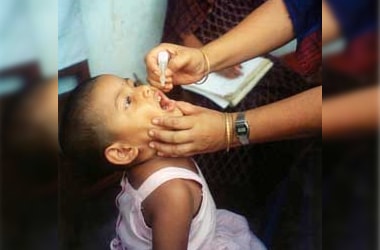 To prevent polio from a few countries, President Pranab Mukherjee launched the pulse polio programme for 2017. To prevent polio from a few countries, President Pranab Mukherjee launched the pulse polio programme for 2017.
He launched it by administering polio drops on Saturday to children below five years at the Rashtrapati Bhavan.
The programme will cover 17 crore children aged under five years to maintain the country's 'polio-free' status.
Mukherjee launched the countrywide programme on the eve of the National Immunisation Day.
Health Minister J P Nadda and Ministers of State for Health Anupriya Patel and Faggan Singh Kulaste were present during the event.
As the risk of importation remains from remaining three countries (Pakistan, Afghanistan and Nigeria) where polio virus is still circulating, the need still persists for the country to maintain the population immunity.
Also needed is sensitive surveillance till global polio eradication happens,.
Polio-free certification of the entire South-East Asia Region of World Health Organisation, including India, on March 27, 2014 is commendable.
|
▼ NPAC- National Action Plan for Children launched! [01-27-17]
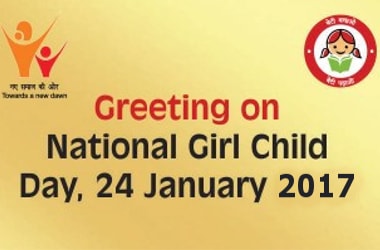 The Union Ministry of Women & Child Development (WCD) has released National Action Plan for Children (NPAC), 2016 . The Union Ministry of Women & Child Development (WCD) has released National Action Plan for Children (NPAC), 2016 .
It was launched on the occasion of National Girl Child Day (24th January) by Union Minister of Women & Child Development Maneka Sanjay Gandhi in New Delhi.
NPAC has been developed by the Ministry of WCD.
Features of NPAC, 2016
- The Action Plan has four key priority areas namely survival, health and nutrition; education and development; participation and protection.
- It defines objectives, sub-objectives, strategies, action points and indicators for measuring progress under the four key priority areas.
- It also identifies key stakeholders for the implementation of different strategies.
- It puts focus on new and emerging concerns for children such as children affected by natural and man-made disasters, climate change and online child abuse etc.
- Its strategies and action points largely draw upon the existing programmes and schemes of various Ministries and Departments.
- It takes into account the Sustainable Development Goals (SDGs) and provides a roadmap towards achieving them though co-ordination and convergence with different stakeholders.
About NPAC
- The National Action Plan for Children (NPAC), 2016 is per the mandate of the National Policy for Children (2013).
- The policy provides for formation of a National Co-ordination and Action Group (NCAG).
- This is under the Union Ministry of Women and Child Development.
- It is for coordinating and implementation of the plan and monitor the progress with other Ministries concerned as its members.
|
▼ Union Cabinet approves Varishtha Pension Bima Yojana 2017 [01-27-17]
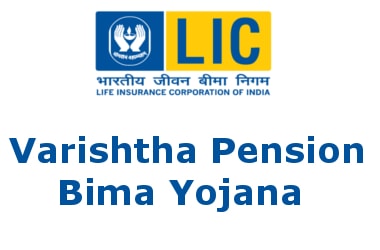 The scheme will be launched as part of Government’s commitment for financial inclusion and social security. The scheme will be launched as part of Government’s commitment for financial inclusion and social security.
It will be implemented through Life Insurance Corporation of India (LIC) during the current financial year i.e. FY 2016-17.
It will be open for subscription for a period of one year from the date of launch. Features of Scheme
The aim of the scheme is to provide social security during old age and protect elderly persons aged 60 years and above against future fall in their interest income due to uncertain market conditions.
It will provide an assured pension based on a guaranteed rate of return of 8% per annum for ten years.
It will also have an option to opt for pension on a monthly, quarterly, half yearly and annual basis.
The Union Government will bear the differential return i.e., the difference between the return generated by LIC and the assured return of 8% per annum as subsidy on an annual basis.
LIC: Know More
- Type: State-owned enterprise
- government corporation
- Industry: Financial services
- Founded: 1 September 1956
- Headquarters: Mumbai, India
- Chairman: V.K Sharma
- MD: Usha Sangwan
- Total assets: ₹2,009,119 crore (US$300 billion) (2016)
- Owner: Government of India
- Number of employees: 119,767
|
▼ GoI launches new scheme for rural housing! [01-27-17]
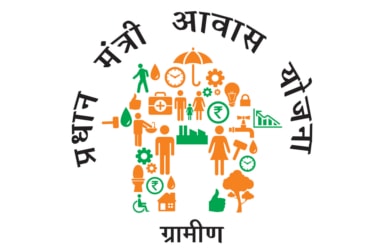 The Union Cabinet has approved a new scheme for promotion of Rural Housing in the country. The Union Cabinet has approved a new scheme for promotion of Rural Housing in the country.
It will enable people in rural areas to construct new houses. It will also add to their existing pucca houses to improve dwelling units.
Under it, Government will provide interest subsidy to every rural household who is not covered under the Pradhan Mantri Aawas Yojana (Grameen)-PMAY(G).
Features of the Scheme
It will be implemented by National Housing Bank (NHB).
Under the scheme, the beneficiary will be provided interest subsidy for loan amount upto INR. 2 Lakhs for taking loan.
GoI will provide net present value of interest subsidy of 3% to NHB upfront which will, in turn, pass it to the Primary Lending Institutions (Scheduled Commercial Banks, NBFCs etc.).
Government will also take necessary steps for proper convergence of the scheme with PMAY-G including technical support to beneficiary through existing arrangements.
It will improve housing stock in the rural areas, and create employment opportunities in rural housing sector.
All About Pradhan Mantri Aawas Yojana
- Scheme Launch Date: 25 June, 2015
- Objective: Affordable Housing for Indian citizens
- Year of Ending: March 2017
- Number of Houses: 2+ crore
- Target: LIG, EWS communities
|
▼ FRBM Committee headed by NK Singh submits report [01-24-17]
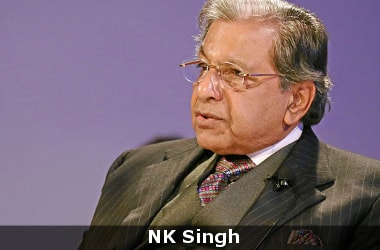 The Fiscal Responsibility and Budget Management Committee headed by Shri NK Singh presented its report to the FM on 23rd Jan 2017. The Fiscal Responsibility and Budget Management Committee headed by Shri NK Singh presented its report to the FM on 23rd Jan 2017.
Singh is the former Revenue and Expenditure Secretary and former Member of Parliament
Other Members of the Committee included:
- Dr. Urjit R. Patel, Governor, Reserve Bank of India (RBI),
- Shri Sumit Bose, former Finance Secretary,
- Dr. Arvind Subramanian, Chief Economic Adviser and
- Dr. Rathin Roy, Director, National Institute of Public Finance & Policy (NIPFP)
Government had constituted a Committee in May, 2016 to review the Fiscal Responsibility and Budget Management (FRBM) Act. The Committee had wide ranging Terms of Reference (ToR) to comprehensively review the existing FRBM Act. This is in the light of contemporary changes, past outcomes, global economic developments, best international practices and to recommend the future fiscal framework and roadmap for the country. Committee’s views on certain recommendations of the Fourteenth Finance Commission and the Expenditure Management Commission were also sought. These primarily related to strengthening the institutional framework on fiscal matters as well as certain issues connected with new capital expenditures in the budget. Various stakeholders were also consulted for the report.
|
▼ Indian government launches NCD programme for prevention, control and screening [01-24-17]
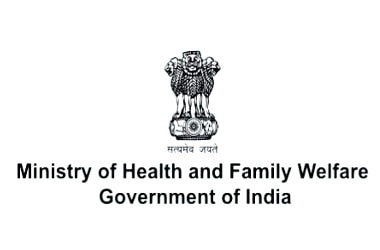 As per the National Health Mission, the Ministry of Health and Family Welfare is launching population based prevention, screening and control programme. As per the National Health Mission, the Ministry of Health and Family Welfare is launching population based prevention, screening and control programme.
It is for five common non-communicable diseases.
These are Hypertension, Diabetes, and Cancers of oral cavity, breast and cervix.
On February 4th coinciding with World Cancer Day, Union Health and Family Welfare Minster is to launch the programme.
The training of frontline workers- the ASHA and ANM which will be initiated. In some sub-centres, population based screening will also start.
Protocols for treatment, referrals and follow-up on these disease conditions will be provided.
In the first phase, the population based screening component will be rolled out in 100 districts in 32 states and UTs.
Around 1000 sub-centres are undertaking screening before March 31st 2017.
ASHAs will also be capturing information on major risk factors. This is so that persons at risk could be counselled on leading healthy lifestyles to prevent onset of NCDs.
Eventually, Chronic Obstructive Respiratory diseases will be included. The programme will be scaled up to cover other districts.
Support to states will also be provided for community health promotion and prevention efforts, and referral and treatment.
What are NCDs?
- Non-Communicable diseases (NCDs) are not transmitted by the infected person.
- These include Cardiovascular Diseases (CVDs) such as heart attacks and stroke, Diabetes, Chronic Respiratory Diseases (Chronic Obstructive Pulmonary Diseases and Asthma) and Cancer.
- The above account for over 60% of all mortality in India.
- Of these, nearly 55% are premature mortality.
- This imposes a financial and social cost on families and the country.
- According to the WEF, India stands to lose $ 4.58 trillion between 2012 and 2030 due to NCD.
|
▼ Union Government awards INR 60.9 crore under lucky draw schemes for digital payments [01-23-17]
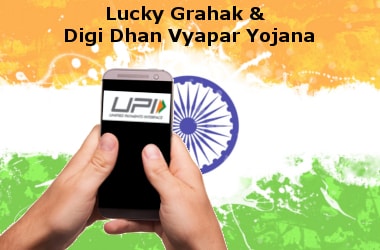 Union Government has awarded INR 60.9 crore as prize money to 3.81 lakh consumers and 21,000 merchants under Lucky Grahak Yojana and Digi-Dhan Vyapar Yojana. Union Government has awarded INR 60.9 crore as prize money to 3.81 lakh consumers and 21,000 merchants under Lucky Grahak Yojana and Digi-Dhan Vyapar Yojana.
Winners include mostly 21-30 year old housewives, small farmers, labourers and anganwadi workers.
Maharashtra, TN, AP, UP and Karnataka are the top 5 states with maximum winners.
Both these schemes were announced in Dec 2016 to boost digital payments post demonetisation.
Aimed at incentivising the consumers and merchants to promote digital payments, they will remain open till April, 2017.
Lucky Grahak Yojana & Digi Dhan Vyapar Yojana: Know More
- NITI Aayog announces the launch of the schemes Lucky Grahak Yojana and the Digi-धन Vyapar Yojana.
- The plans aim to give cash awards to consumers and merchants who utilize digital payment instruments.
- The plan is for personal consumption expenditures.
- The scheme specially focuses on bringing the poor, lower middle class and small businesses into the digital payment fold.
- National Payment Corporation of India (NPCI)is the implementing agency for this scheme.
- The primary aim of these schemes is to incentivize digital transactions.
- It seeks to ensure electronic payments are adopted by all sections of the society, especially the poor and the middle class.
- The schemes will comprise of two major components, one for the Consumers and the other for the Merchants.
- They will remain open till April 14, 2017.
|
▼ Negotiation committee on Mahanadi, tributaries constituted [01-23-17]
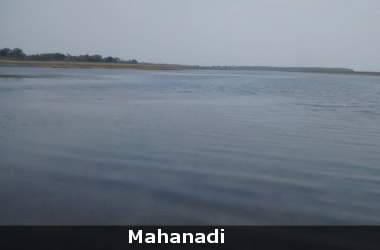 GoI has constituted negotiation committee on Mahanadi and its Tributaries. GoI has constituted negotiation committee on Mahanadi and its Tributaries.
The Union Ministry of Water Resources has constituted negotiations committee to assess availability of river waters.
Aim is utilisation of waters of Mahanadi and its tributaries to resolve disputes over sharing of river waters among five states.
These five states are Odisha, Chhattisgarh, Madhya Pradesh, Maharashtra and Jharkhand.
The committee will be chaired by member (water planning and projects) of the Central Water Commission (CWC).
CWC: Know More
- Location: New Delhi, India
- Type: Governmental organisation
- Class: Central
- Key work: Research, river management, water project planning
- Website: www.cwc.nic.in
- The work of the Commission is divided among 3 wings namely:
1. Designs and Research Wing (D&R), 2. River Management Wing (RM) and 3. Water Planning and Projects Wing (WP&P).
|
▼ Bihar government launches Nasha Mukt campaign [01-23-17]
 Bihar government launched Nasha Mukt campaign to make the state addiction-free. Bihar government launched Nasha Mukt campaign to make the state addiction-free.
This was marked by formation of over 11 thousand km long human chain across the state.
It is claimed to be world’s largest human chain and broke previous record of 1050 km human chain formed in Bangladesh.
The campaign will herald a new era in the state as no one will be permitted to use intoxicating substance and tobacco products.
Over 2 crore people participated in this human chain that covered all panchayats of the state.
Apart from satellite, drones and low flying aircraft will also be used for taking images of the human chain.
CM Nitish Kumar said 'nasha mukti' in Bihar would herald a new era in the country as no one will be permitted to use intoxicating substance and tobacco products.
He said Bihar will become an ideal state of the country as dreamed by Mahatma Gandhi.
|
▼ Saksham 2017 launches for sustainable petroleum use [01-18-17]
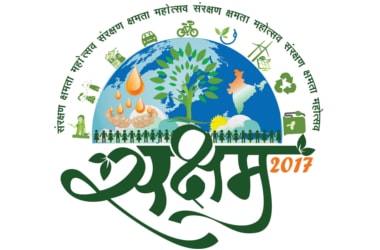 The Union Ministry of Petroleum & Natural Gas has launched Saksham 2017 (Sanrakshan Kshamta Mahotsav). The Union Ministry of Petroleum & Natural Gas has launched Saksham 2017 (Sanrakshan Kshamta Mahotsav).
This an awareness program for sustainable use of petroleum products.
It is month long awareness programme. It aims to create awareness amongst masses towards judicious utilization and conservation of petroleum products.
It also stresses on the use of energy efficient appliances and switching to cleaner fuels.
The programme is initiative of Petroleum Conservation Research Association (PCRA) and other Oil & Gas PSUs under the aegis of the Union Ministry of Petroleum & Natural Gas.
During one-month long awareness drive, workshops on adopting simple fuel saving measures will be organised for drivers of commercial vehicles and housewives, cooks.
It will also host activities like Quiz Show, Walkathons, Saksham Asian Cycling Championship, concerts.
It will also carry out other activities across the country to educate on various steps for fuel conservation.
|
▼ WCD ministry to form National Alliance to Combat Child Sex Abuse Online [01-17-17]
 The Ministry of Women & Child Development, Government of India is set to form National Alliance against Online Child Sexual Abuse and Exploitation. The Ministry of Women & Child Development, Government of India is set to form National Alliance against Online Child Sexual Abuse and Exploitation.
This alliance aims to develop a comprehensive outreach system to engage parents, schools, communities, NGO partners and local governments (PRIs and ULBs) as well as police and lawyers.
It seeks to ensure better implementation of the legal framework, policies, national strategies and standards in relation to child protection and child rights.
Child sexual abuse is a multi-layered problem which negatively impacts children’s safety, health and well being. The abuse is finding new forms and channels through mobile and digital technologies.
Online child abuse and exploitation amplifies existing forms of offline bullying, stalking and harassment.
It also facilitates the sexual exploitation of children through the production and dissemination of child sexual abuse material. Online abuse increases the sexual exploitation and trafficking of children.
India has a comprehensive legal framework for protection of child rights in the form of:
- Juvenile Justice (Care and Protection of Children) Act 2015,
- POCSO Act, 2012 along with
- RTE Act 2009 and
- Child Labour (Prohibition and Regulation) Amendment Act, 2016.
However, there is limited awareness of online risks for children. To combat this, the National Alliance has been formed. Objectives of the National AllianceNational Alliance on Child Sexual Abuse and Exploitation has the following broad objectives: - Bring a common definition of child pornography including amendment of acts (Information technology Act, POCSO Act).
- Set up a multi-member secretariat based in MWCD with a portal inclusive of a hotline for reporting and strengthening existing service delivery systems.
- Provide a platform for Government/ NGOs and other child rights activists for networking and information sharing.
- Document and showcases success stories and best practices in terms of prevention of online abuse and exploitation of children.
- Inform and educate member organisations, parents, teachers, front line service providers and children on the rights of the children and various issues related to online child abuse and exploitation.
- Provide a forum for advocacy for child rights and policy inputs based on research and studies
Ministry of Women and Child Development: Know More
- Jurisdiction: India
- Headquarters: Ministry of Women and Child Development, Shastri Bhawan, Dr. Rajendra Prasad Road, New Delhi
- Minister: Smt. Maneka Gandhi, Ministry of Women and Child Development
- Website: wcd.nic.in
|
▼ Indigo Airlines participates in Aakhri Aahuti initiatives [01-16-17]
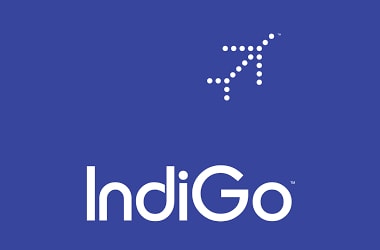 DoNER Minister Jitendra Singh on 14th Jan 2017 lauded the Indigo airlines’ decision to be part of "Aakhri Aahuti" initiative. DoNER Minister Jitendra Singh on 14th Jan 2017 lauded the Indigo airlines’ decision to be part of "Aakhri Aahuti" initiative.
The initiative is to fly “mortal remains” of people from the Northeast free of cost to their native places.
The Vice President of Indigo Airlines, Vikram Chona personally called on Dr Jitendra Singh here and formally handed over a letter from the President of Indigo, Aditya Ghosh
From Delhi, Indigo is currently operating to Guwahati, Agartala, Dibrugarh, Dimapur and Imphal.
When Indigo starts operations to other destinations in North East, the same facility, free of cost, shall be provided on those routes as well.
The first such, free of charge, facility was provided to a Manipur native living in Delhi who passed away and his mortal remains were flown to Imphal.
Those from NE States residing in Delhi often faced a very unfortunate situation whenever there was a death in the family.
Due to financial restrictions, the relatives of the deceased were often unable to take the dead body to their native place in North East.
As a result, he said the last rites of several such deceased persons had to be carried out in Delhi itself by compulsion.
Indigo was lauded for its role in PPP (Public Private Partnership) model with the Government and private sectors jointly offering services to citizens at different levels and in different situations.
|
▼ Pravasi Kaushal Vikas Yojana: Skill development program for Indians employed overseas [01-10-17]
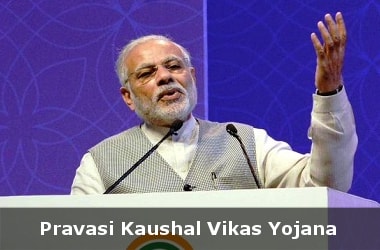 MEA has announced that Prime Minister Narendra Modi will launch Pravasi Kaushal Vikas Yojana targeted at Indian youth seeking overseas employment. MEA has announced that Prime Minister Narendra Modi will launch Pravasi Kaushal Vikas Yojana targeted at Indian youth seeking overseas employment.
PKVY is a skill development programme. At current count, more than 31 million Indians live and work outside India.
This was announced at the 14th edition of the Pravasi Bharatiya Divas which was the largest ever held with 8000 delegates.
India has the potential to play the role of a Vishwa Guru. PVKY is a skill development initiative of the MEA.
MEA and MSDE have signed an MOU for its implementation. The scheme will be implemented by NSDC/National Skill Development Corporation through its training partners in consultation with MEA and MSDE.
Features of PVKY
- The Short Term Training imparted at PMKVY Training Centres (TCs) is for school/college dropouts or unemployed.
- Apart from providing training according to the National Skills Qualification Framework (NSQF), TCs shall also impart training in Soft Skills, Entrepreneurship, Financial and Digital Literacy.
- Individuals with prior learning experience or skills shall be assessed and certified under the Recognition of Prior Learning (RPL) component of the Scheme.
- The Special Projects component of PMKVY envisages the creation of a platform that will facilitate trainings in special areas.
- TPs shall conduct Kaushal and Rozgar Melas every six months with press/media coverage.
- They are also required to participate actively in National Career Service Melas and on-ground
- Placement and monitoring guidelines are in place.
|
▼ World's largest street light replacement programme [01-9-17]
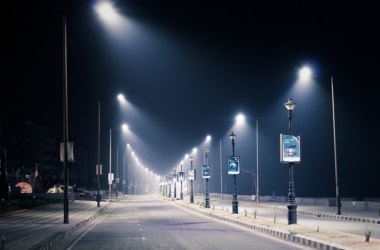 Street Lighting National Programme (SLNP), currently running in the South Delhi Municipal Corporation (SDMC) area and other locations, will be dedicated to the nation in New Delhi on 9th January, 2017. Street Lighting National Programme (SLNP), currently running in the South Delhi Municipal Corporation (SDMC) area and other locations, will be dedicated to the nation in New Delhi on 9th January, 2017.
It is the world’s Largest Street Light Replacement Programme, which is being implemented by the Energy Efficiency Services Limited (EESL), a joint venture under the Ministry of Power, Government of India.
The SLNP programme is presently running in Punjab, Himachal Pradesh, Uttar Pradesh, Assam, Tripura, Jharkhand, Chhattisgarh, Telangana, Andhra Pradesh, Kerala, Goa, Maharashtra, Gujarat and Rajasthan.
A total of 15.36 lakh street lights have already been replaced in the country with LED bulbs, which is resulting in energy savings of 20.35 crore kWh, avoiding capacity of 50.71 MW and reducing 1.68 lakh tonnes of greenhouse gas emissions per annum.
The energy efficiency market in India is estimated at US$ 12 billion that can potentially result in energy savings of up to 20 per cent of current consumption, by way of innovative business and implementation models.
Under the SLNP, SDMC area alone accounts for over 2 lakh street light replacements. The cumulative annual energy savings in SDMC through this programme is 2.65 crore kWh which has helped to avoid capacity addition of 6.6 MW, resulting in a daily reduction of 22,000 tonnes of greenhouse gases.
Additionally in Delhi, under Phase II of the street lighting programme, EESL has signed a tripartite agreement with BSES and SDMC to install 75,000 more street lights with more focus on installation in parks.
EESL SL Complaint App for SDMC, wherein users can now lodge complaints about faulty street lights will also be launched; These complaints will be addressed to within a period of 48 hours.
Consumers can also WhatsApp on the helpline numbers 7827999111/ 7827999222 or they can send their complaints to sdmc@eesl.co.in.
|
▼ Delhi Government launches Good Samaritan Policy [01-9-17]
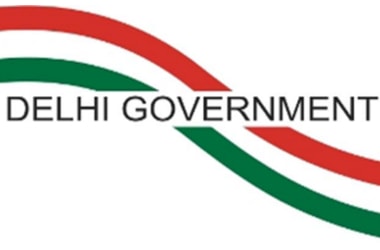 Under this scheme, monetary incentive of Rs 2,000 and appreciation certificate will be given to people who help road accident victims in the national capital. Under this scheme, monetary incentive of Rs 2,000 and appreciation certificate will be given to people who help road accident victims in the national capital.
Scheme is intended to encourage people to take accident victims in emergency situation to hospitals so that someone’s life could be saved.
The government had mooted a proposal in August last year after a road accident victim in West Delhi’s Subhash Nagar bled to death because no one had helped him.
The Deputy CM said that most of people are unwilling to help, mainly because they are scared they will land in trouble or be harassed.
In some cases, doctors also cite reasons behind the death of accident victim that if he or she could be admitted in hospital on time, his or her life could have been saved.
Under the same scheme, the AAP government had in April last year, had decided to provide basic life support training to all auto-rickshaw drivers in the city. The idea was to have help at hand in case of a road accident.
Road Accidents in India: Report
- In 2015, 8085 accidents had taken place in the capital.
- According to a Central government study, Mumbai is the city with maximum road accidents in the country.
- The number of deaths in road mishaps is highest in Delhi.
- Mumbai had the highest number of 23,468 number of road accidents during 2015.
- Delhi had the highest number of 1,622 deaths due to road accidents.
- This was according to the ‘Road Accidents in India’ report.
- It was unveiled in June last year by Road Transport and Highways Ministry.
|
▼ NGMIS: The new ground water management scheme [01-9-17]
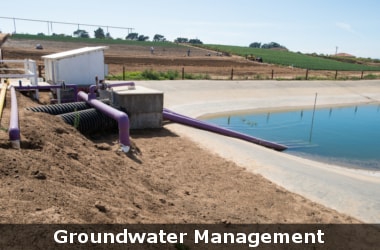 Facing a sharp decline in groundwater levels in different parts of the country due to over exploitation of existing resources, Centre has proposed an INR 6000 crore scheme called NGIS backed by the World Bank. Facing a sharp decline in groundwater levels in different parts of the country due to over exploitation of existing resources, Centre has proposed an INR 6000 crore scheme called NGIS backed by the World Bank.
WB will support half of the total cost of the scheme, while the remaining half will be funded through budgetary support by the government.
World Bank will approve the funding for the scheme soon. Funds under NGMIS will be used for capacity building, institutional reforms and infrastructure development.
Features of NGMIS
- Infrastructure development includes building recharge structure\facilities for utilising rain water directly from roof top, creating rain water harvesting structures for conserving surplus run-off and recharging ground water in aquifers.
- Scheme would be meant for "sustainable management of ground water by addressing supply as well as demand side to reduce ground water consumption".
- NGMIS will be implemented across the country, but special focus will be on states having 'dark' (over-exploited) zones where the withdrawal of water is more than the recharge.
- These states include Haryana, Gujarat, Rajasthan, Maharashtra, Karnataka, Uttar Pradesh (Bundelkhand region and parts of western UP) and Madhya Pradesh (Bundelkhand region).
- Indiscriminate use of ground water, mainly for irrigation, has increased the number of over-exploited units from 802 in March, 2009 to 1,071 in March, 2011 in the country.
- The over-exploited units are mostly concentrated in Punjab, Haryana, Delhi, western UP, Rajasthan, Gujarat, Karnataka, Andhra Pradesh, Telangana and Tamil Nadu.
- The programme would be implemented during 2017-2022 period.
- It is being framed in coordination with existing programmes and activities including MGNREGA, the Pradhan Mantri Krishi Sinchayee Yojana (PMKSY) as well as the National Hydrology Project (NHP).
- It will also have a 'performance-based incentive' system as its key component to reward states and local authorities for improvement in groundwater management.
- The NGMIS will cover the policy aspects of irrigation efficiency, crop diversification and artificial recharge in the areas which witnessed uncontrolled and unplanned groundwater extraction over the last 50 years.
Groundwater in India: Know More
- India annually extracts 245 Billion Cubic Meter (BCM) of groundwater.
- This accounts for nearly 25% of the total global groundwater abstraction.
- About 222 BCM out of 245 BCM of groundwater is being used annually for irrigation.
- Remaining 23 BCM is consumed by domestic and industry sector.
- Programme includes clear targets for groundwater recharge, water use efficiency and aquifer protection by participating states.
|
▼ IRCTC Connect Gets New Name and Technology [01-9-17]
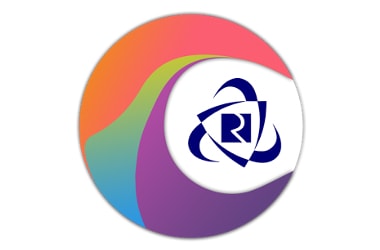 Equipped with latest technology, existing IRCTC Connect will now become IRCTC Rail Connect to facilitate booking of train tickets in a faster and easier way, a senior Railway Ministry official announced. Equipped with latest technology, existing IRCTC Connect will now become IRCTC Rail Connect to facilitate booking of train tickets in a faster and easier way, a senior Railway Ministry official announced.
IRCTC, which handles online train ticket bookings, will formally unveil the IRCTC Rail Connect App in the coming week to cater to the growing demand of passengers to make the ticketing App more user-friendly and faster.
The new ticketing App will be based on next generation e-ticketing system. It will be synchronised with the ticketing website also, which is missing in the current system.
Travellers will continue to be able to search and book train tickets, check their existing reservations or cancel them, and get upcoming journey alerts in the new application.
IRCTC Rail Connect will retain the passenger details for the recently-booked tickets, so that they don't have to enter their details again and again.
|
▼ TIES: New scheme to boost export infrastructure [01-9-17]
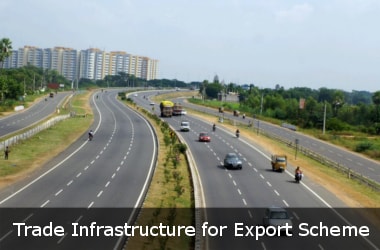 Centre will tie up with States to roll out new scheme called TIES or Trade Infrastructure for Export Scheme to boost infrastructure. Centre will tie up with States to roll out new scheme called TIES or Trade Infrastructure for Export Scheme to boost infrastructure.
States will develop own export strategy in alignment with the national foreign trade policy, as well as enhance co-operation with Central agencies to set up common facilities for testing, certification, trace-back, packaging and labelling.
This announcement was made as most states want a central scheme which supports export infrastructure.
Indian roads carry nearly 65 per cent cargo against the global trend where railway is the major contributor.
Therefore the States should focus on improving the last mile connectivity of major exporting hubs to Inland Container Depot/Ports. Quality of roads including their load bearing capacity may be upgraded for smooth transit of export goods
States should cooperate with the Centre for setting up common facilities like testing labs and training institutes as well as to ensure packaging and storage support to the Indian industry.
So far only 17 States (of the 29 States and seven Union Territories in the country) have prepared their export strategy,
Meanwhile, the Centre has decided to soon bring out a Logistics Performance Index to rank states on steps taken to facilitate trade and improve logistics.
Measures in the pipeline include expediting the proposal for a north east corridor to improve connectivity with south east Asian countries and exports to that region.
The move assumes significance as the "Assistance to States for Development of Export Infrastructure and Allied Activities (ASIDE) Scheme" shifted to states on the recommendations of the 14th Finance Commission.
ASIDE provides for an outlay for development of export infrastructure in states. TIES is an entirely different initiative, effort and scheme. ASIDE scheme that was discontinued by the Centre in 2015-16, but with different features.
States will also be ranked by the Centre on their logistics performance beginning this year.
The ASIDE scheme was given up by the Centre when the States’ share in net proceeds of the Union tax revenues was increased to 42 per cent from 32 per cent in line with the 14th Finance Commission’s recommendations.
The Revenue Department under the Union Finance Ministry has extended SWIFT (single window interface for facilitation of trade), a single window customs clearance facility for export consignments as well.
Know More About SWIFT
- Central Board of Excise and Customs (CBEC) has launched ‘SWIFT’, an initiative to speed up clearances for consignments and improve ‘ease of doing business.’
- Single Window Interface for Facilitating Trade (SWIFT) provides a single-point interface for clearance.
- It is expected to reduce documentation and costs.
- It is expected to cover and benefit over 97 per cent of India’s imports.
- Importers will not need to run around to get approvals from multiple government agencies for their consignments.
- The single window connects over 50 offices of six government agencies with the Indian customs department.
- These are the Food Safety Standards Authority of India (FSSAI); Department of Plant Protection, Quarantine and Storage; Drug Controller; Animal Quarantine; Wild Life Crime Control Bureau and Textile Committee.
- The launch of SWIFT is a big step because there are very few administrations in the world that had managed to put this in place.
- Among the countries that have launched single-window interface are Singapore, South Korea, Japan, Australia, Thailand and Malaysia.
|
▼ Helpline for handloom weavers, Bunkar Mitra launched [01-5-17]
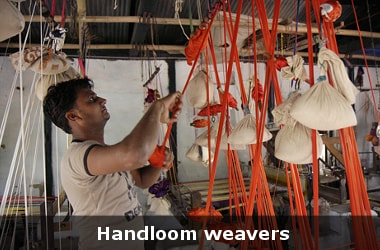 The helpline Bunkar Mitra for handloom weavers went live on Jan 4, 2016. It can be accessed by dialing the toll free number 1800-208-9988. The helpline Bunkar Mitra for handloom weavers went live on Jan 4, 2016. It can be accessed by dialing the toll free number 1800-208-9988.
Benefits
- Through the helpline, weavers can obtain assistance on:
- Technical issues,
- Guidance for raw material supply,
- Availing credit facility,
- Quality control,
- Access to marketing linkages and
- Information about various schemes and procedures to avail benefits.
FeaturesOne of the key features of 'Bunkar Mitra' is that the grievance/query raised by weavers has to be resolved in 72 hours. If the grievance/query is not resolved within the given time frame, it will automatically be redirected to a director-level officer. A back-end dashboard has been set up not only to keep track of the queries/grievances but also find areas where weavers face maximum difficulty according to a tweet by the Textiles Ministry. The minister has also instructed officials to prepare a monthly report to analyse the nature of grievances and keep track of redressals. The helpline provides a single point of contact to handloom weavers across the country for addressing queries and providing guidance. The service is available in seven languages: Hindi, English, Tamil, Telugu, Bengali, Kannada and Assamese. Know More About India Handloom Brand Scheme- Handloom production generates employment and is eco friendly in line with Sabka Sath, Sabka Vikas.
- India Handloom brand would be evolved based on high quality defect free, socially and environmentally compliant product.
- It will be catering to the needs of the high-end consumers looking for niche handmade products. The scheme would initially be voluntary.
- The producers would be encouraged to maintain the quality of the product, which will be specified. All the products under the brand should have the benchmarked quality for the raw material.
- Also included are the processing as well as for packing and labeling besides proving the origin from the hand-woven sector.
- The stakeholders comprise Weavers, Master Weavers, Primary Co-operative Societies, Apex Handloom Societies, Retailers and Exporters.
These are directly involved in the production and marketing of their produce in the domestic and in the export market.
|
▼ NTR Arogya Raksha Scheme: AP Government's medical insurance initiative [01-4-17]
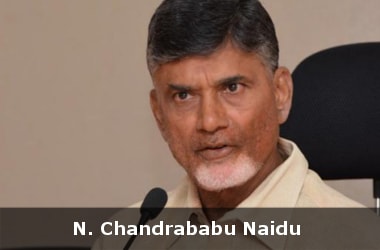 CM of Andhra Pradesh, N. Chandrababu Naidu on Dec 1 2016 launched the NTR Arogya Raksha Scheme in Vijayawada. CM of Andhra Pradesh, N. Chandrababu Naidu on Dec 1 2016 launched the NTR Arogya Raksha Scheme in Vijayawada.
The scheme aims to provide medical treatment to APL or Above Poverty Line at INR 1200 premium per annum.
Medical insurance is for those not covered under existing state government health schemes.
NTR Arogya Seva has been already launched for BPL families.
Scheme provides medical treatment for 1044 health and medical ailments.
The scheme also provides treatment free of cost at both corporate and government hospitals.
A similar service was launched for employees and journalists through health cards.
Health care spending in the state is at 17% after 30 initiatives were launched in 2016.
Students of medicine, nursing, psychology and home science were also asked to improve public health through the Swasthya Vidya Vahini.
Highlights of NTR Arogya Raksha Scheme
- As per the scheme, end-to-end cashless services will be provided for 1044 diseases under secondary care.
- Also tertiary care through 432 government and private hospitals will be provided.
- Scheme will offer INR 2 lakh and free treatment.
- APL families will avail benefits by paying monthly installment of INR 100 per month/per person.
- People can register for the scheme at Mee Seva centres till Feb 28, 2017.
|
▼ HLC on Institutionalization of Arbitration Mechanism in India formed [01-2-17]
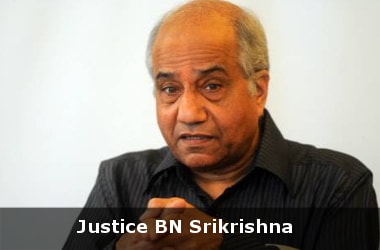 Union Government on 29th Dec 2016 constituted a High Level Committee to review institutionalization of Arbitration Mechanism of India. Union Government on 29th Dec 2016 constituted a High Level Committee to review institutionalization of Arbitration Mechanism of India.
The committee has been constituted by the Ministry of Law and Justice.
It will be chaired by Justice BN Srikrishna, retired SC judge.
Secretary, Department of Legal Affairs will be member secretary of the committee.
The Committee will have to submit its report within a period of 90 days.
Terms of reference of the committee are:
- Review and analysis of the effectiveness of existing arbitration mechanisms.
- Review the resources, facilities, funding and manpower of current ADR institutions.
- Review working of the institutions that is funded by the Union government for arbitration purposes.
- It will also assess skill gaps in ADR and allied institutions for national and international arbitration.
- It will evaluate information outreach and efficacy of the legal framework for arbitration at is currently existing.
The committee will also suggest measures for the institutionalization of arbitration mechanism, national and international in India, to make the country a hub of international commercial arbitration. To encourage the International Commercial Arbitration, it will identify required amendments in other laws that are needed. It will also formulate an action plan for law implementation to ensure speedier arbitrations. It will also recommend revision of institutional rules and regulations and their funding support. Advice on empanelment of international and national arbitrators for time bound arbitral proceedings will be given by the committee. It will also put forth a roadmap for R&D. It will also enlist the steps needed for augmenting skill sets and professional manpower buildup for the sector. It will also recommend measures required to make arbitration widely available in curricula and study materials. The committee will focus on the role played by arbitration in matters involving the State such as the bilateral investment treaties arbitrations and make recommendations when required. It will also evolve an effective arbitration ecosystem to expedite resolution of international and domestic disputes of a commercial nature. Other Members of the Committee- Justice RV Raveendran, Retired Judge, Supreme Court
- Justice S Ravindra Bhat, Judge, Delhi High Court
- KK Venugopal, Senior Advocate, Supreme Court
- PS Narasimha, Addl Solicitor General of India
- Indu Malhotra, Senior Counsel, Supreme Court
- Araghya Sengupta, Director, Vidhi Centre for Legal Policy
- Representative of Federation of Indian Chambers of Commerce and Industry (FICCI)
- Representative of Confederation of Indian Industry (CII)
This committee was formed in line with the Arbitration and Conciliation Amendment Act 2015 passed by the Parliament in Dec 2016. Committee was founded based on stress on the Justice Dispensing System of India and a huge pendency of cases in numerous courts. Arbitration offers alternative dispute resolution.
|
| Chronology of events |
|
The 27th Southern Zonal Council, chaired by Rajnath Singh, was held in Thiruvananthapuram
|
|
The Cochin Shipyard Limited (CSL) has delivered ICGS AYUSH, the 20th Fast Patrol Vessel (FPV) to the Indian Coast Guard. With this, CSL has completed construction of 20 FPVs for the Indian Coast Guard.
|
|
The Union Minister of State for Minority Affairs (Independent Charge) and Parliamentary Affairs, Shri Mukhtar Abbas Naqvi launched Haj Committee of India Mobile App at Haj House in Mumbai on Jan 2nd 2016.
|
|
The Union Ministry of Urban Development has launched Swachh Survekshan 2017 to rank 500 cities/towns across the nation on cleanliness with a population of 1 lakh and above.
|
|
PM Narendra Modi inaugurated the 104th Indian Science Congress at Sri Venkateswara University in Tirupati, Andhra Pradesh.
|
|
The Union Government has approved an assistance of over Rs. 1782.44 crore rupees for Karnataka as drought relief. The state will get this sum from the National Disaster Relief Fund.
|
|
Japan has decided to assist India with the development of Chennai, Ahmedabad and Varanasi as smart cities.
|
|
The three day International Conference on “Yoga for Diabetes” was held in New Delhi. It was inaugurated by Union Minister of State (MoS) for AYUSH (Independent Charge) Shripad Yesso Naik.
|
|
Prime Minister Narendra Modi launched Pravasi Kaushal Vikas Yojana (PKVY), a skill development program targeted at Indian youth seeking overseas employment.
|
|
According to Former Chief Election Commissioner TS Krishnamurthy, the model code of the conduct does not interfere with ongoing schemes. It only restricts fresh announcements and particularly those which might favour poll-bound states.
|
|
Tamil Nadu has become the 21st state to join UDAY (Ujjwal Discom Assurance Yojana). The southern state on Jan 9 2016 signed the memorandum of understanding to join the revival package for discoms.
|
|
The Union Government has made mandatory for workers in rural areas enrolled under the Mahatma Gandhi National Rural Employment Guarantee Scheme (MGNREGA) to have an Aadhaar card.
|
|
In Madhya Pradesh Indore district witnessed inauguration of first of its kind scheme of the country. Digital Dakiya, which aims at encouraging cashless transactions. “Digital Dakiya or Digital Postman will visit different places to teach about this.
|
|
Mahindra Asset Management Company Pvt. Ltd (MAMCPL) has announced launch of Mahindra Mutual Fund Dhan Sanchay Yojna scheme.
|
|
Union Minister for Youth Affairs and Sports Vijay Goel inaugurated national level competitions under the Khelo India scheme at the S.P. Mukherjee Swimming Pool complex in the Talkatora Stadium.
|
|
Minister of Railways Shri Suresh Prabhakar Prabhu unveiled Mission 41k during the Roundtable Discussion with External Stakeholders on Energy Initiatives of Indian Railways.
|
|
Madhya Pradesh became the first State of the country to launch Aanandam programme to help the needy persons.
|
|
The first flight under the government’s ambitious regional connectivity scheme UDAN (Ude Desh Ke Aam Naagrik) will to take off in February 2017.
|
|
In a bid to incentivise investments and move towards the goal of ‘net zero imports’ in the electronics sector by 2020, the Union cabinet approved on Jan 18 2017 amendments to the Modified Special Incentive Package Scheme (MSIPS).
|
|
The Karnataka government has decided to allow the sale of white kerosene in open market.
|
|
The government has decided to list five state-owned general insurers and said it will bring down its stake in these insurance companies to 75%. The decision was approved by the Cabinet Committee on Economic Affairs (CCEA).
|
|
The 2017 Combined Commanders Conference (CCC) was held at Indian Military Academy (IMA) in Dehradun, Uttarakhand.
|
|
The Steel Ministry has released new draft National Steel Policy of 2017, envisaging to double India’s domestic steel production capacity to 300 million tonnes by 2030-31.
|
|
The Union Government has constituted committee (Working Group) to frame uniform rules for the states to avoid delay in proper implementation of the Rights of Persons with Disabilities Act, 2016.
|
|
Arunachal Pradesh launched 'Dulari Kanya', a special scheme to check infant mortality in the state, on the occasion of the 68th Republic Day.
|
|
The Andhra Pradesh under Chief Minister Chandrababu Naidu has announced Rs 100-crore fund of funds to invest in Fintech startups. Fintech is being seen as a promising space to generate job opportunities.
|
|
The Union Government has launched nationwide “Sparsh Leprosy Awareness Campaign (SLAC)” on the occasion of Anti-Leprosy Day (observed on the last Sunday of January).
|